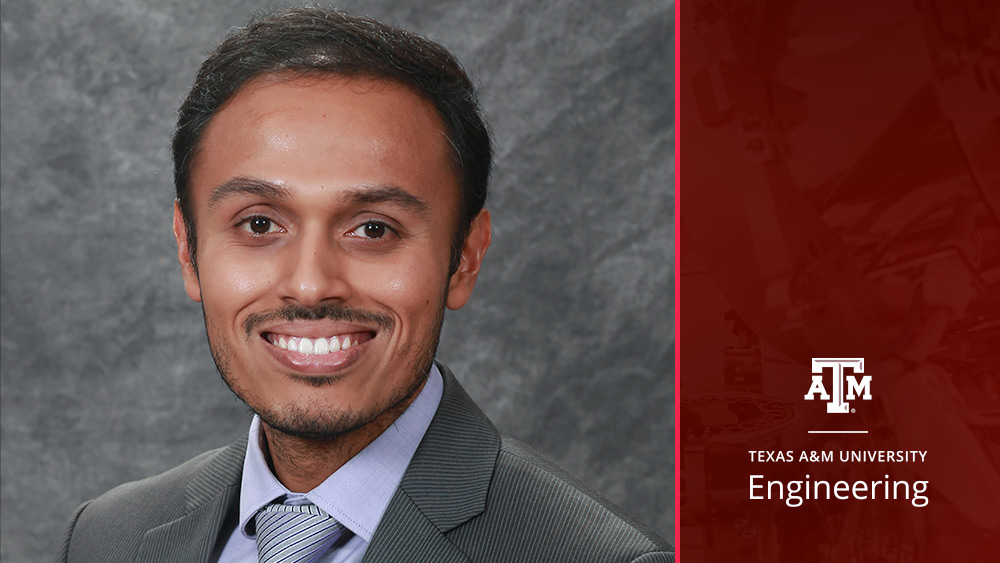
Dr. Moble Benedict from the Department of Aerospace Engineering at Texas A&M University has been named an associate fellow by the American Institute of Aeronautics and Astronautics (AIAA).
According to AIAA, the grade of associate fellow recognizes “individuals of distinction who have made notable and valuable contributions to the arts, sciences, or technology of aeronautics or astronautics.”
Only one for every 150 voting members is selected yearly for this highly competitive membership level. To be selected, an individual must be an AIAA senior member in good standing with at least 12 years of professional experience and be recommended by three current associate fellows or higher.
“I am deeply honored to receive this recognition from AIAA. My heartfelt gratitude goes out to my colleagues within and beyond Texas A&M, as well as to my graduate students and the wider Rotorcraft community. It is through their unwavering support that this achievement has become a reality,” Benedict said.
In addition to being an associate professor of aerospace engineering, Benedict directs the Advanced Vertical Flight Laboratory. He received his bachelor’s and master’s degrees in aerospace engineering from the Indian Institute of Technology Bombay in 2004 and his doctorate in aerospace engineering from the Alfred Gessow Rotorcraft Center at the University of Maryland in 2010. He spent four years as a research scientist at the University of Maryland and joined Texas A&M in 2014.
Benedict’s research focuses on generating disruptive and revolutionary innovations through interdisciplinary, fundamental research related to the broad areas of aeromechanics, design, dynamics, and control of next-generation vertical flight concepts, green aviation, aircraft concepts for planetary exploration, high-efficiency wind/tidal turbines, and unmanned underwater vehicles. His work has resulted in over 40 archival journal papers, 100 conference papers, 10 patents filed and 12 best paper awards. His research has been featured by “CNN,” “Popular Mechanics,” “Aerospace America,” “Economist,” “Houston Chronicle,” “NY Times,” “IEEE Spectrum” and more.
Benedict is a recipient of the AIAA Young Engineer/Scientist of the Year award, American Helicopter Society François-Xavier Bagnoud award and Grand Prize of Lockheed Martin Innovate the Future challenge. Recently, he led a team of graduate students in the $2 million Boeing GoFly Prize to develop an ultra-quiet personal air vehicle, where they won both the first and second phases (among the top 5), competing with 800+ teams from 110 countries. He co-founded Harmony Aeronautics Inc. as a direct spin-off from the Boeing GoFly effort to foster the development of safe, quiet, ultra-compact, vertical-flight-capable advanced air mobility platforms, which could be used for a wide range of applications in commercial and military sectors.
“This achievement serves as a powerful motivation to persist in our dedicated efforts towards enabling a new generation of aircraft, including the ones that will allow you to take off quietly from your driveway and fly to work,” Benedict said.
He will join the Class of 2024 AIAA Associate Fellows in January 2024 at an induction ceremony during the AIAA SciTech Forum in Orlando, Fla.